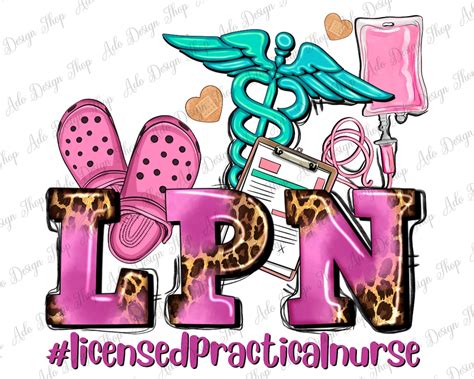Intro
Licensed Practical Nurses (LPNs), also known as Licensed Vocational Nurses (LVNs) in some states, play a vital role in the healthcare system. They work under the supervision of registered nurses and physicians to provide essential care to patients. If you're considering a career in nursing, understanding the role of an LPN can help you determine if this path is right for you.
LPNs are responsible for providing basic nursing care to patients, including administering medications, monitoring vital signs, and performing routine medical procedures. They work in various healthcare settings, such as hospitals, clinics, nursing homes, and private practices. LPNs often work closely with other healthcare professionals to ensure that patients receive comprehensive care.

What Does an LPN Do?
LPNs are responsible for a range of tasks, including:
- Administering medications and injections
- Monitoring patients' vital signs, such as temperature, blood pressure, and pulse
- Performing routine medical procedures, such as wound care and catheterization
- Collecting samples for lab tests and preparing patients for exams
- Providing basic care, such as bathing and dressing patients
- Assisting with patient transfers and positioning
- Maintaining patient records and reporting concerns to supervisors
Work Environment
LPNs work in various healthcare settings, including:
- Hospitals
- Clinics
- Nursing homes
- Private practices
- Rehabilitation centers
- Hospices
LPNs may work in specialized areas, such as:
- Pediatric care
- Gerontological care
- Surgical care
- Rehabilitation care
LPN Requirements
To become an LPN, you'll need to meet the following requirements:
Education
- Complete a state-approved LPN training program, which typically takes 12-18 months to complete
- Earn a diploma or certificate in practical nursing
- Some LPNs may choose to pursue an associate's degree in nursing, which can take two years to complete
Licensure
- Pass the National Council Licensure Examination (NCLEX-PN) to become licensed
- Meet state-specific licensure requirements, which may include a background check and continuing education requirements
Skills and Qualities
- Strong communication and interpersonal skills
- Ability to work well under pressure and prioritize tasks
- Compassion and empathy for patients and families
- Basic math and science skills
- Ability to lift and move patients, as needed

LPN Career Outlook
The demand for LPNs is expected to grow 11% from 2020 to 2030, which is faster than the average for all occupations. This growth is driven by an aging population and an increased need for healthcare services.
LPNs can advance their careers by:
- Pursuing specialized certifications, such as pediatric or gerontological care
- Taking on leadership roles, such as charge nurse or nurse educator
- Pursuing a registered nurse (RN) degree through an LPN-to-RN program
Salary and Benefits
LPNs can expect a competitive salary and benefits package, including:
- Median annual salary: $47,480 (according to the Bureau of Labor Statistics)
- Health insurance and retirement plans
- Paid time off and holidays
- Opportunities for professional development and advancement

Conclusion
A career as an LPN can be rewarding and challenging. If you're passionate about providing patient care and working in a dynamic healthcare environment, this may be the right career path for you. By understanding the role of an LPN and the requirements for this career, you can make an informed decision about your future.
We encourage you to share your thoughts and experiences about LPNs in the comments below. If you have any questions or would like to learn more about LPN programs, please don't hesitate to ask.
What is the difference between an LPN and an RN?
+LPNs and RNs have different education and training requirements. LPNs typically complete a 12-18 month training program, while RNs complete an associate's or bachelor's degree in nursing. RNs also have more autonomy and responsibility in their practice.
Can LPNs work independently?
+No, LPNs typically work under the supervision of RNs or physicians. However, they may have some autonomy in their practice, depending on the state and employer.
How long does it take to become an LPN?
+Typically, it takes 12-18 months to complete an LPN training program. However, some programs may be shorter or longer, depending on the state and employer.
